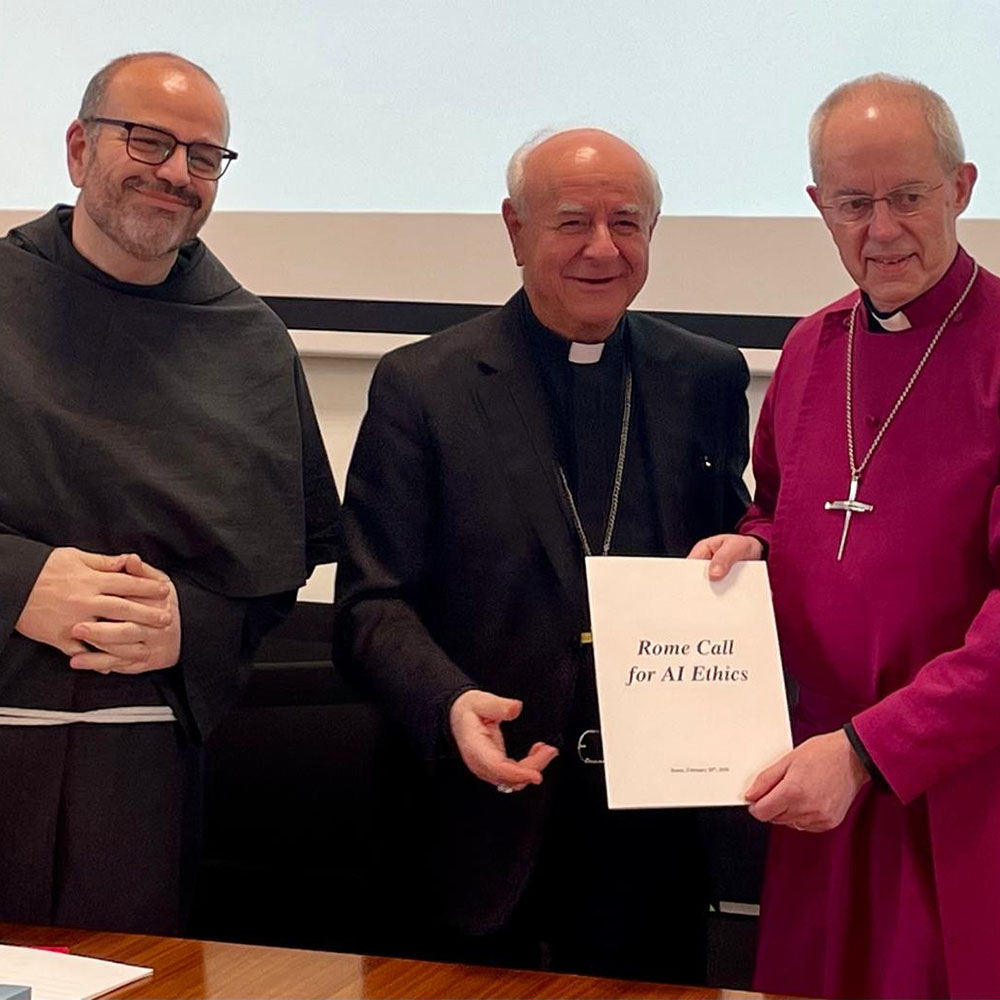 The Archbishop of Canterbury’s signature on Rome’s Call for AI Ethics is the final stage of the Oxford Diocesan pledge to endorse fair work in our motion to General Synod in February.
The Archbishop of Canterbury’s signature on Rome’s Call for AI Ethics is the final stage of the Oxford Diocesan pledge to endorse fair work in our motion to General Synod in February.
The motion, presented at General Synod by Bishop Steven, also called on the Faith and Order Commission to report on fair and dignified work in the context of the fourth Industrial Revolution.
Human flourishing
In presenting the motion to Synod, Bishop Steven said:
“For a Christian, work is central for human flourishing and not just an economic issue. We were placed in a garden and charged with a God-given task from the very beginning. Work is related intimately to human dignity and purpose."
"Work is more than just the tools we invent or master. Work is more than just a means to earn a wage."
Human creativity
The Bishop of Oxford continued, "The theological value of work faces new and powerful challenges and needs to be articulated afresh in the public square. To give the most current example, data scraped from the World Wide Web often disregards copyright or intellectual property rights, folding individual examples of human craft and creativity so deep inside a black box that proving theft is beyond most individuals.”
The Archbishop’s amendment committed the Church of England to becoming a signatory on the Rome Call for AI Ethics, and the statement was signed during a meeting of the Primates held in Rome for the first time last week.
Bishop Steven regularly comments on artificial intelligence and the need for governmental commitment to ensuring online safety, particularly for children and young people. You can read more from the bishop on his blog.
